- Aggregators and wholesalers can help workspaces attract new clients, providing operators think strategically about how and where they sell their space
- One such consideration is Minimum Advertised Pricing (MAP), which sets the minimum pricing displayed on an advertisement
- Implementing a MAP policy will give you more control about how your space is sold in order to maintain value and integrity in your brand.
Finding workspace can sometimes be as hard as finding an apartment. Luckily, there are several online platforms out there that facilitate the search process by listing and reviewing options that users can easily compare.
We’re talking about aggregators and wholesalers, like Alliance Virtual Offices, Coworker.com, Davinci Virtual Office Solutions, Liquidspace and Sharedesk, among others. These platforms can help flexible workspace operators attract new clients, as well as traveling business people; to attract the latter group, operators should offer hourly or day passes.
On the surface, listing your space in these platforms seems like an easy way to grow your membership. However, flexible workspace operators need to think more strategically about how and where they are selling their space.
Let’s start with a few basic concepts:
MAP: Minimum Advertised Pricing. This can be a formal or informal policy implemented by operators to set the minimum pricing that can be displayed on a website or advertisement (online and print).
Promotional Pricing: This is the dollar or percentage of discount off an actual space for a short period of time.
Below Retail Pricing: Displaying a product at a price below its typical “retail” pricing. Or if MAP has been established, “breaking MAP”, without temporary discounts or rebates — which makes it seem less promotional and more like the actual price of the product is lower. This tactic is mainly used to drive sales and volume.
In the traditional retail industry, resellers may drive sales through aggressive ‘below retail pricing’ in order to gain sales and market share. This means that they have an unfair advantage over competitors, as the prices they are listing are very attractive. However, the reseller is not doing the brand a favor, and though more people might purchase the product, the value of the brand is lowered, especially as prices in other websites vary, which might take away the brand’s credibility.
But what has this got to do with the flexible workspace industry?
If you are listing your space on an external website, you need to constantly monitor how they are selling your space and at what price in order to maintain value and integrity in your brand and in your service. Think about how your members would react if they are paying say $500 a month for a dedicated desk, and then search online to find that you are listing that same membership for $350 a month.
What if a person searching for space sees different prices on different websites? Take a look at the screenshots below:
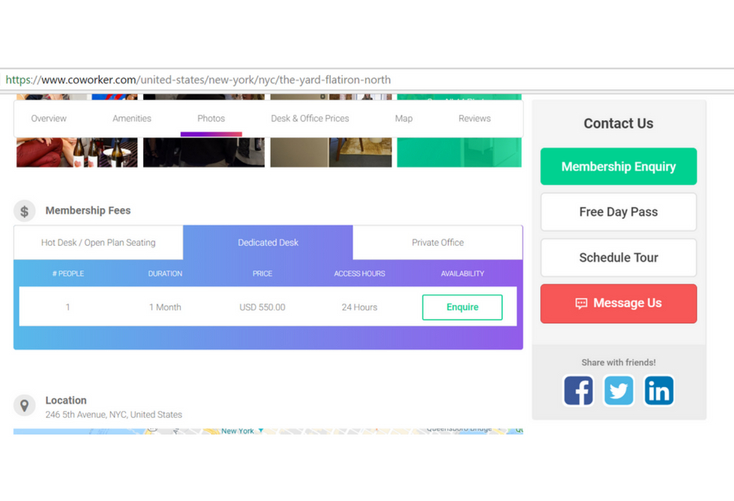
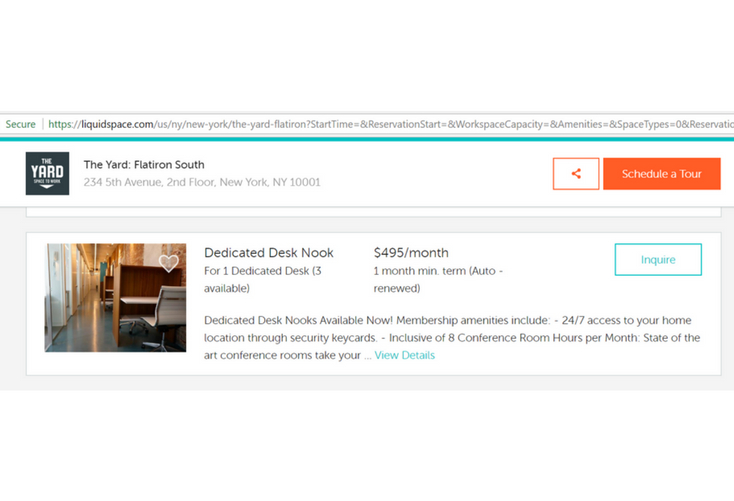
Coworker.com’s advertised price for a dedicated desk for one month in The Yard Flatiron South in NYC is $550.00, while the same listing goes for $495.00 in Liquidspace.
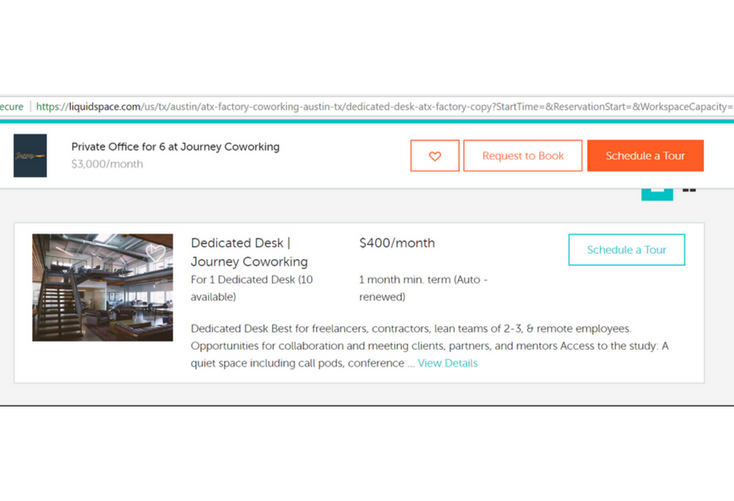
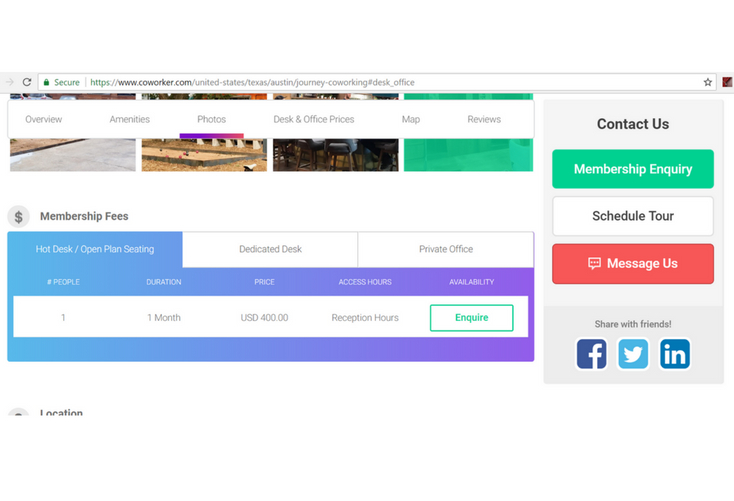
A dedicated desk in Journey Coworking listed in Liquidspace sells for $400 a month. A hot desking option in Journey Coworking listed in Coworker.com goes for the same price. As you already know, hot desking options tend to be cheaper than dedicated desks.
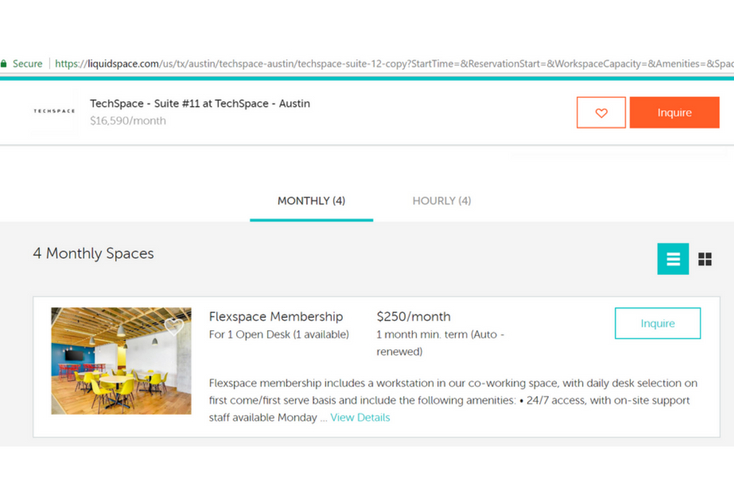
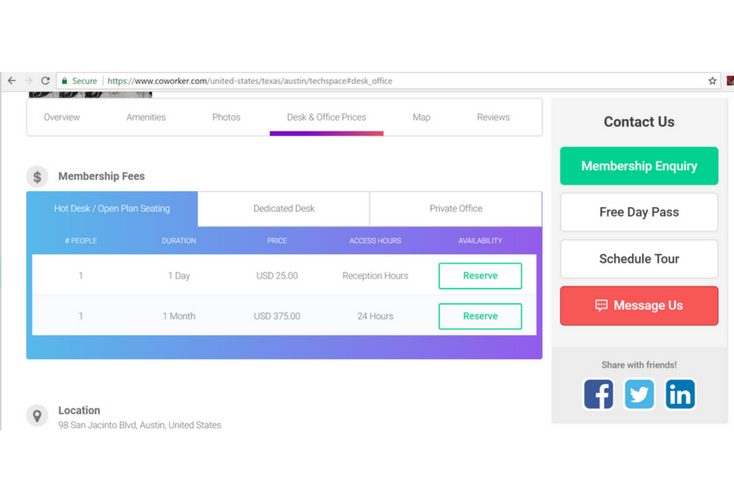
According to Liquidspace, a hot desking option in TechSpace in Austin is worth $250 a month, while the same option is worth $375 when listed on Coworker.com.
See the problem?
In some cases this can be explained merely by a center not keeping up with its pricing across all of its resellers, but we recently spoke with a center owner (who wishes to remain anonymous) who found that some resellers were aggressively pricing one of their centers below the wholesale price, set by the center in their contract. In effect, the reseller was losing money to gain share.
This is where a MAP policy can help.
MAP is the lowest price a retailer (Liquidspace, Alliance Virtual Offices, Coworker, etc.) can advertise for a given product. The MAP policy, however, does not affect the price at which the product can actually be sold, only how it is advertised to the public. This means that retailers can still offer discounts and promotions, they just need to advertise the pricing that the flexible workspace operator has set.
A MAP policy will give you more control about how your space is sold and it will portray a strong, consistent brand to the public. It will also help you build a loyal membership. If members know they are getting the best value for their money, they aren’t likely to switch just because they found a better price.
MAP is also beneficial for resellers, as it will protect their profit margins, prevent price cascading, and drive revenue growth. It also means that in order to differentiate themselves, they will need to focus on customer service or some other value added service, which can in turn say a lot about your workspace brand, even if just indirectly.
In any case, as a flexible workspace operator that’s listed on an external website, you should have a process where you or a staff member review your space’s pricing online. Ideally, this should be done on a weekly basis and it will just take about 10-15 minutes if you have all the necessary URLs saved in a document. If on these weekly reviews you find inconsistent prices instead of the prices you’d agreed with the reseller, you might want to consider implementing a MAP policy.
If you want a better understanding of how MAP works, its benefits and how it is different from price fixing (which is illegal), we suggest you read this article by PriceWaiter.

 Dr. Gleb Tsipursky – The Office Whisperer
Dr. Gleb Tsipursky – The Office Whisperer Cat Johnson – Coworking Marketing Maven
Cat Johnson – Coworking Marketing Maven Angela Howard – Culture Expert
Angela Howard – Culture Expert Drew Jones – Design & Innovation
Drew Jones – Design & Innovation Andrea Pirrotti-Dranchak – Competitive Advantage
Andrea Pirrotti-Dranchak – Competitive Advantage Jonathan Price – CRE & Flex Expert
Jonathan Price – CRE & Flex Expert Jeremy Fennema – Tech Innovation Alchemist
Jeremy Fennema – Tech Innovation Alchemist







